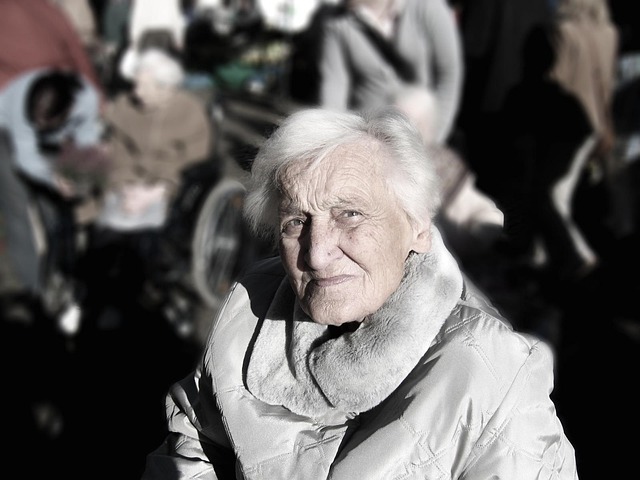Nursing homes in Ohio are legally obligated to prevent and address sexual assault against residents through comprehensive staff training programs. Specialized elderly sexual assault lawyers and law firms guide facilities, ensuring compliance with strict state laws and fostering a culture of safety and respect for vulnerable elders. Tailored training, involving real-life scenarios and legal experts, equips caregivers to recognize risks, de-escalate situations, and report incidents promptly. Continuous education, through workshops and online courses, enhances staff awareness and intervention skills, minimizing psychological and physical harm to Ohio's elderly residents. For legal support, residents and their families can turn to trusted elderly sexual assault lawyers, attorneys, or law firms in the state dedicated to advocacy and accountability.
In Ohio, ensuring the safety and dignity of elderly residents in nursing homes is paramount. Given the vulnerability of this population, preventing sexual assaults within care facilities becomes a critical legal and ethical obligation. This article explores the significance of comprehensive training programs for nursing home staff aimed at sexual assault prevention. We delve into legal implications, best practices for designing effective training, and resources available to Ohio-based elderly sexual assault lawyers, attorneys, and law firms dedicated to safeguarding residents’ rights.
Understanding the Significance of Sexual Assault Prevention in Nursing Homes

In nursing homes, where residents often rely heavily on staff for their well-being and safety, preventing sexual assault is of paramount importance. Ohio, like many states, has stringent regulations in place to safeguard vulnerable elderly individuals from potential abuse, including sexual misconduct by caregiving personnel. An elderly sexual assault lawyer or attorney in Ohio, as well as law firms specializing in this area (elderly sexual assault law firms OH), play a crucial role in ensuring these protections are understood and enforced.
The significance of training programs for nursing home staff cannot be overstated when it comes to preventing sexual assaults against residents. These incidents can have severe psychological and physical consequences, impacting the quality of life for victims and creating a hostile environment within the facility. By implementing comprehensive training, Ohio-based elderly sexual assault lawyers and attorneys advocate for a culture where awareness is high, consent is emphasized, and any signs or instances of inappropriate behavior are promptly addressed. Effective prevention strategies include regular workshops, simulations, and ongoing discussions that educate staff on recognizing red flags, responding appropriately to sensitive situations, and promoting a safe and respectful environment for all residents.
Legal Implications and Obligations for Care Facilities in Ohio

In Ohio, care facilities, including nursing homes, have a legal obligation to protect the residents under their care. The state’s laws regarding sexual assault prevention are stringent, emphasizing the facility’s responsibility to ensure a safe environment for elderly individuals who may be vulnerable to such incidents. Any form of sexual misconduct or assault against a resident can lead to severe legal consequences for the facility and its staff.
An elderly sexual assault lawyer in Ohio or an elderly sexual assault attorney from a reputable law firm in OH can guide care facilities on navigating these obligations. These professionals understand the intricate legal landscape surrounding elder abuse and can help establish comprehensive training programs. Such programs should include recognition of potential risks, proper reporting procedures, and effective intervention strategies. By adhering to these guidelines, nursing home staff can not only fulfill their legal duties but also contribute to a culture of safety and respect within the facility.
Designing Effective Training Programs for Staff Members

Training programs for nursing home staff in Ohio on sexual assault prevention must be meticulously designed to address the unique needs and challenges faced by caregivers. Effective training should go beyond basic awareness and delve into practical strategies for identifying potential risks, de-escalation techniques, and proper reporting procedures. Incorporating real-life scenarios and interactive workshops can enhance learning outcomes, ensuring staff members feel prepared to handle sensitive situations involving vulnerable residents.
When crafting these programs, it’s crucial to involve subject matter experts, including elderly sexual assault lawyers from Ohio or attorneys specializing in elder care law. Their insights can provide a legal framework for understanding the implications of such incidents and ensure staff are equipped with knowledge about relevant laws and regulations. Tailoring training to meet the specific requirements of Ohio’s elderly sexual assault laws is vital, as it enables staff to recognize and respond to potential cases appropriately, ultimately fostering a safer environment for residents.
Resources and Support for Continuous Education and Awareness

Continuous education and awareness are vital components in preventing and addressing sexual assault within nursing homes. Ohio residents and their loved ones can turn to several resources for support. Reputable elderly sexual assault lawyers, attorneys, and law firms in OH specialize in advocating for victims and ensuring that staff receive proper training. These legal professionals offer guidance and representation, making them valuable allies in promoting safety and accountability.
Nursing home staff can benefit from regular workshops, webinars, and online courses focused on recognizing signs of potential abuse, reporting procedures, and effective intervention strategies. State-mandated training programs often collaborate with local law enforcement agencies and non-profit organizations to provide comprehensive educational materials. By staying informed and connected, healthcare workers can actively contribute to a culture of prevention and protection for the elderly population in Ohio.





